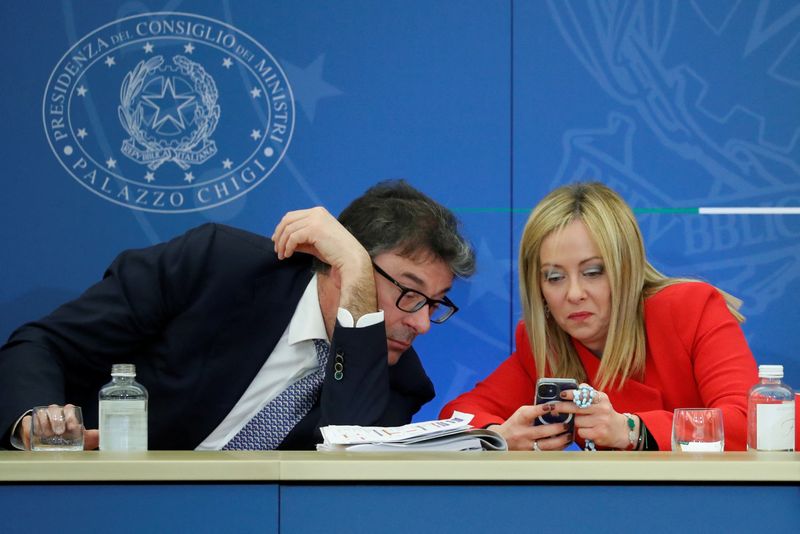By Giuseppe Fonte
ROME (Reuters) - Italy estimates a 2023 budget deficit broadly in line with its previous goal of 4.5% of national output, people familiar with the matter said, as Rome works to finalise new projections to be published next week.
Under current trends, the Treasury forecasts a fiscal gap this year somewhat narrower than the 4.5% set last November, despite the negative impact of higher interest rates set by the European Central Bank (ECB) to curb inflation and a recent European Union ruling on the treatment of tax credits.
The final target is still to be decided, and Prime Minister Giorgia Meloni could confirm or increase the 4.5% goal to allow leeway for additional spending, the sources said.
It will be published along with a raft of economic projections in the Treasury's annual Economic and Financial Document (DEF) to be issued by April 13.
Eurostat's ruling this year on tax credits offering homeowners incentives to adopt costly energy saving home improvements forced Italy to revise up its budget deficits from 2020 and 2022.
This led Rome to curtail the programme to ensure it has only a small impact on this year's state finances.
Last week Economy Minister Giancarlo Giorgetti said that the outlook for the Italian economy was improving, but ECB rate hikes could pose a threat to growth. The higher rates also increase the government's borrowing costs, putting upward pressure on the deficit.
Italian gross domestic product is now expected to grow by almost 1% this year, up from the 0.6% target set in November, the sources said.
A key issue affecting growth prospects and consequently fiscal revenues is Italy's ability to catch up with the investment programme funded through the European Union post-COVID recovery funds.
The European Commission has frozen an overdue 19-billion euro ($20.65 billion) tranche of these funds for Italy, requesting clarification over Rome's efforts to meet the "targets and milestone" needed to unlock the money.

Italy's audit court last week warned that the overall investment spending at the end of this year was expected to be almost 15 billion euros less than the initial framework laid out in 2021 by Meloni's predecessor Mario Draghi.
($1 = 0.9202 euros)